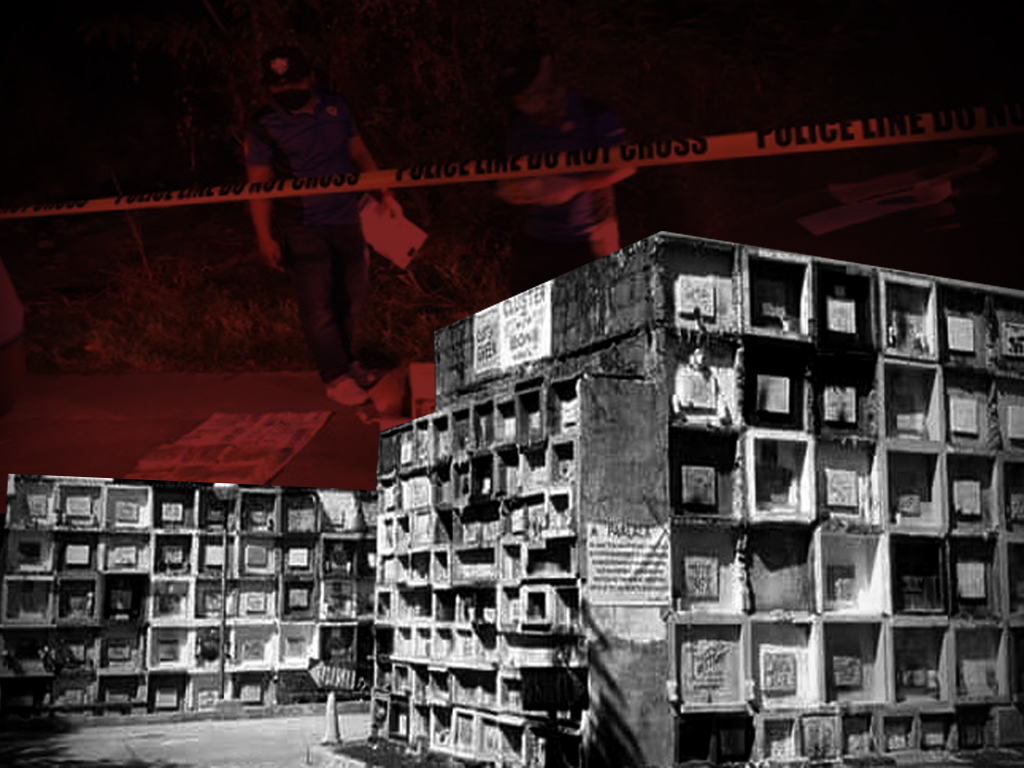Drug war victims: Exhumed bodies dramatize need to preserve the record of government violence and injustice
CHEERS TO Rappler for its report on the cold December morning when the bodies of some victims killed during the government’s drug war had to be exhumed from the graves in which they had been temporarily buried.
Reporter Rambo Talambong wrote the article, a painful reminder of the violence of the Rodrigo Duterte Presidency’s centerpiece policy and its brutality and disproportionate targeting of the poor. Indeed, the families featured were too financially challenged to secure permanent grave sitesh for their dead, paying only for short term leases with expiration dates.
They had received assistance from Father Flavie Villanueva, who helped the families of drug war victims deal with their loss and seek justice for their dead. This particular effort was to save the remains from being completely abandoned or buried in mass graves.
The report, published on January 19, followed three women as gravesite workers prepared to remove the remains according to schedule. Talabong set the scene and captured the sorrow of the families as they recalled how they had lost a father or a son.
Talabong reported with a clear perspective. His compelling depiction of the event gave life to the grief and burden borne by the women seeking a resting place for their departed, who are still hoping for the justice that has so far eluded them.
An interactive visual helped readers to see the sites of the exhumations in Metro Manila assisted by Villanueva, showing the status, the location of the cemetery, the date of death, the grave’s date of expiry, and lastly, the date the remains were exhumed. The numbers show that poor victims are deprived even of their physical resting place, drawing out the stark reality of how much the poor have suffered from the drug war.
Talabong tied the report together by establishing the failure of the country’s justice system to hold abusers within the state to account for their actions. He wrote of Kian Delos Santos as one case in which the evidence could not spare the accused. Of the thousands of killings involving the police since 2016, Kian’s killers have been the only ones jailed. Talabong then noted that the International Criminal Court’s investigation of Duterte would take years and would need the cooperation of the Philippine National Police for any conviction to be successful.
Talabong wrote a second report, released on January 20, which included the story of mothers seeking justice for their loved ones who were killed in police operations.
This second part included a striking five-minute video interview with one victim’s mother, Mariza Hamoy, a street sweeper, who recounted the killing of her son Darwin at the hands of police.
Hamoy said she has challenged as a fabrication the police narrative trotted out ad nauseam – that the teenager had dealt drugs and fought back in a shootout with authorities. Along with two other women with kin killed by the police, Mariza filed cases with the Philippine National Police Internal Affairs Service in 2017.
But the last two recanted their stories and withdrew their complaints. Hamoy told Talabong that one policeman advised her to simply request a hefty settlement and “move on.” She refused, saying she’d sooner have justice for her son. The report checked the records of the cases and found that the killers had escaped trial and jail time, with some promoted or re-assigned.
As Duterte’s term comes to its end, the media should help the public recall the dark violence of the drug war and the scant efforts to keep the cases in the public mind. The exhumations are a metaphor for saving the record, refusing to abandon the truth of sustained and glaring injustice to prevent its being forgotten or revised.

Leave a Reply